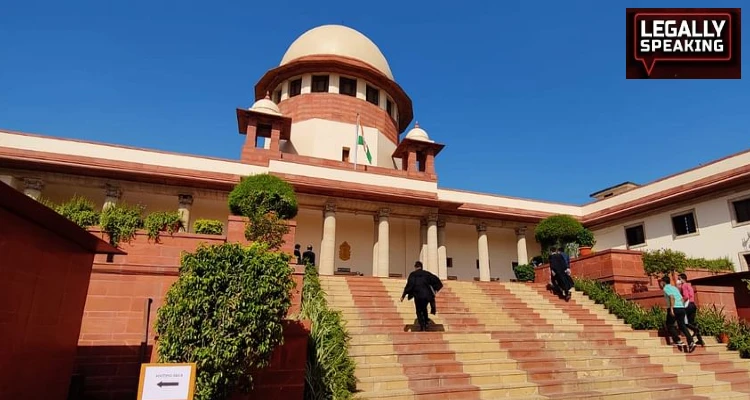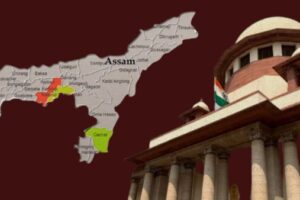
The Supreme Court has declined to consider a plea challenging the constitutional validity of specific provisions of the Criminal Procedure (Identification) Act.
The Act, which gained Presidential assent on April 19, 2022, grants authority to police and investigators to procure physical and biological samples from individuals accused of crimes. This Act replaces the century-old Identification of Prisoners Act of 1920, which was limited to capturing finger and footprint impressions and photographs of certain accused categories under magistrate instructions.
A bench of Justices Sanjiv Khanna and Dipankar Datta granted liberty to petitioners Internet Freedom Foundation (IFF) and Criminal Justice and Police Accountability Project (CPAP), jointly filing the plea, to approach the high court.
“Why don’t you go to the high court? We will have the benefit of the high court’s view on the issue,” the bench informed advocate Abhinav Sekhri, representing IFF.
Stressing a “complex interplay” between various laws, the counsel highlighted the alleged excessive delegation of authority without adequate privacy safeguards and due process adherence. Urging court intervention, the counsel referenced changes regarding rule-making provisions, noting the shift from state-only rule-making power under the Identification of Prisoners Act to a scenario where both the Centre and states occupy that field, with central rules also challenged before the Supreme Court. However, Justice Khanna directed the counsel to approach the high court.
“All constitutional courts are competent to deal with these important issues. Please go there. Sorry,” he said.
The bench decreed, “We are not inclined to entertain the present writ petition under Article 32 of the Constitution. We leave it open for the petitioner to approach the jurisdictional high court by a writ petition under Article 226 of the Constitution. We clarify that we have not made any comments or observations on the merits of the case.”
Apart from legally sanctioning police to obtain physical and biological samples of convicts and detainees for criminal investigation, the Criminal Procedure (Identification) Act also empowers magistrates to order measurements or photographs of individuals to aid in offence investigation. According to the law, in case of acquittal or discharge, all collected material must be destroyed.
The Act specifies the types of data that may be collected, individuals from whom such data may be collected, and the authorizing authority. It also provides for central database storage of the collected data. Both the 1920 and 2022 laws stipulate that resistance or refusal to allow data collection will be deemed an offence of obstructing a public servant from performing duties.





